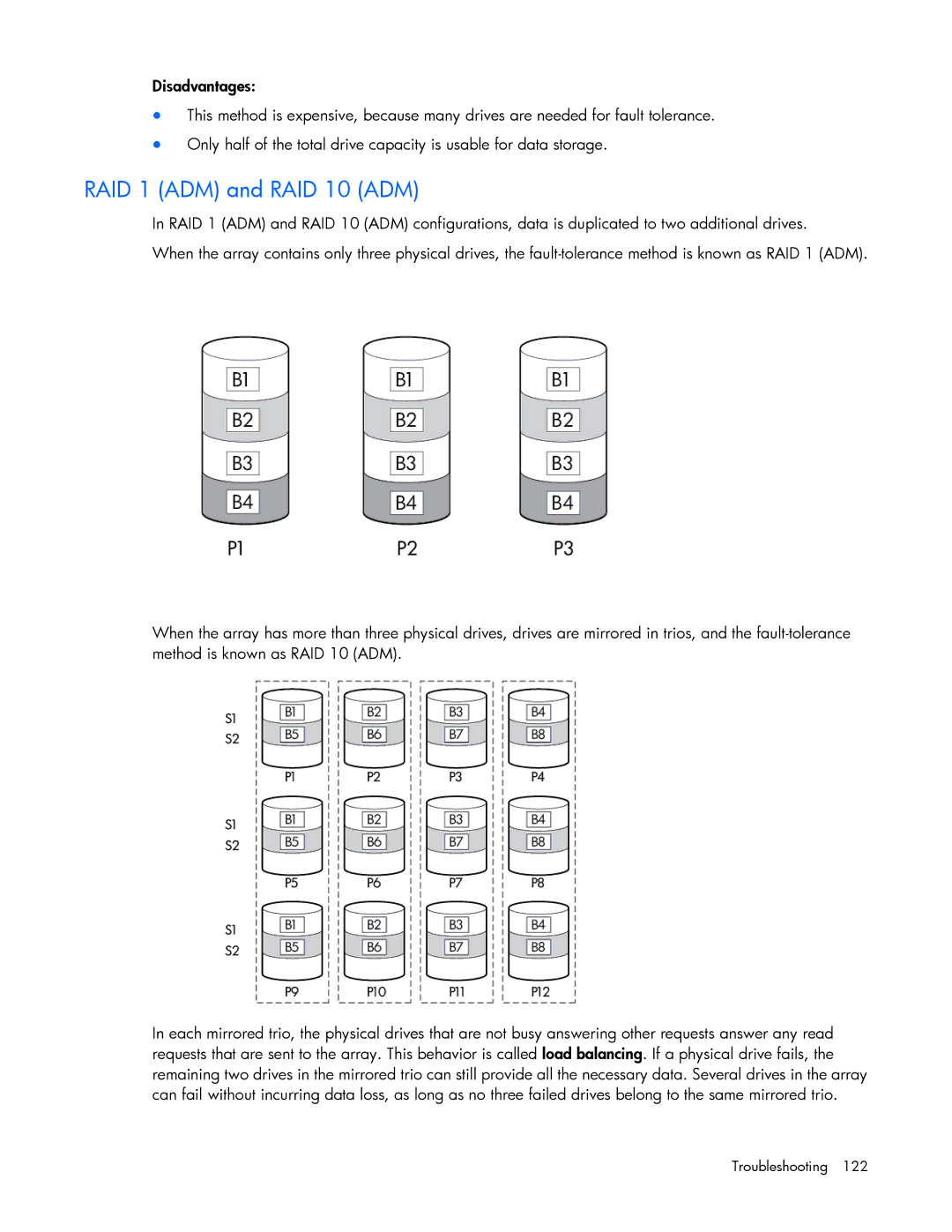
Disadvantages:
•This method is expensive, because many drives are needed for fault tolerance.
•Only half of the total drive capacity is usable for data storage.
RAID 1 (ADM) and RAID 10 (ADM)
In RAID 1 (ADM) and RAID 10 (ADM) configurations, data is duplicated to two additional drives.
When the array contains only three physical drives, the
When the array has more than three physical drives, drives are mirrored in trios, and the
In each mirrored trio, the physical drives that are not busy answering other requests answer any read requests that are sent to the array. This behavior is called load balancing. If a physical drive fails, the remaining two drives in the mirrored trio can still provide all the necessary data. Several drives in the array can fail without incurring data loss, as long as no three failed drives belong to the same mirrored trio.
